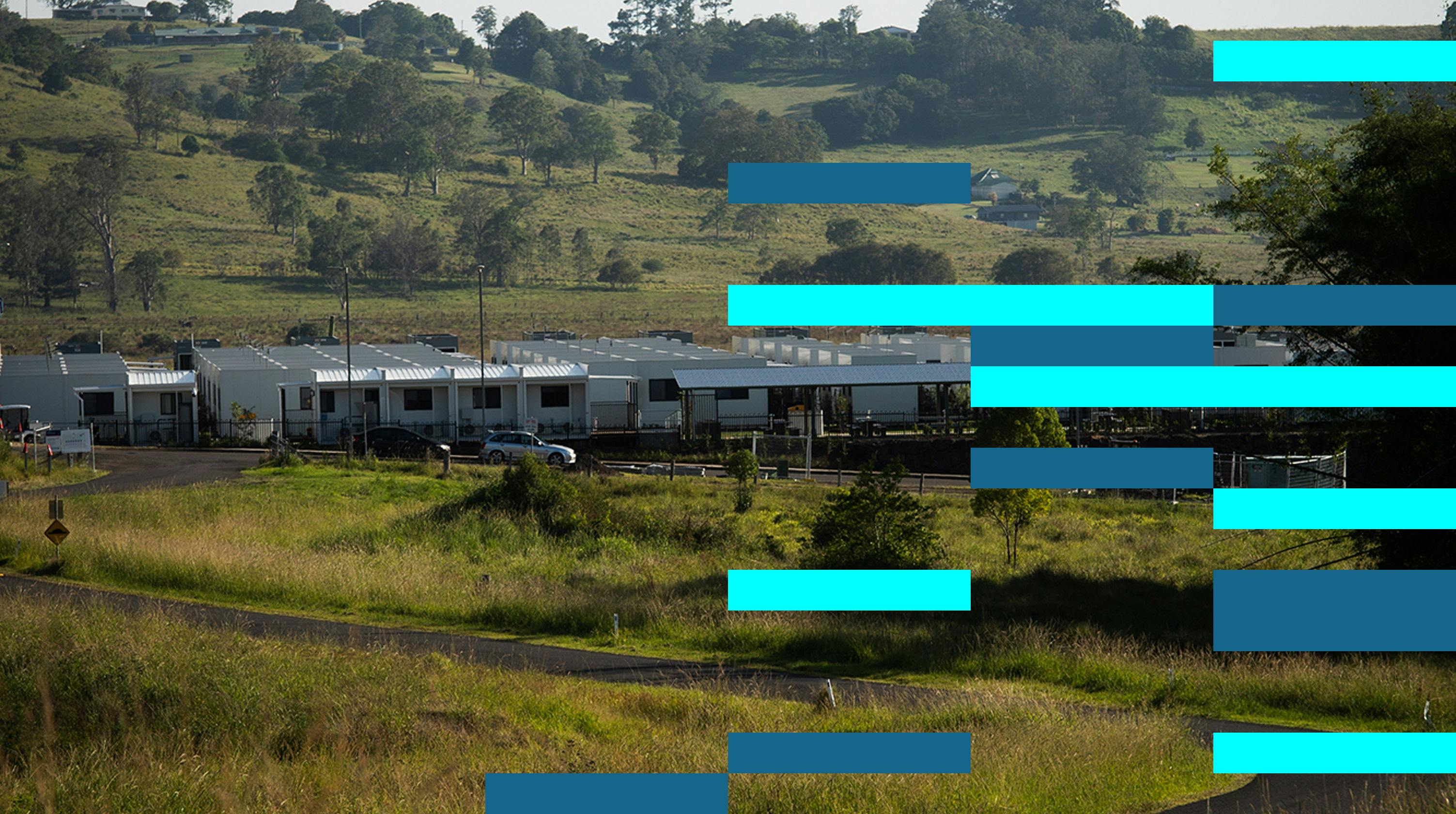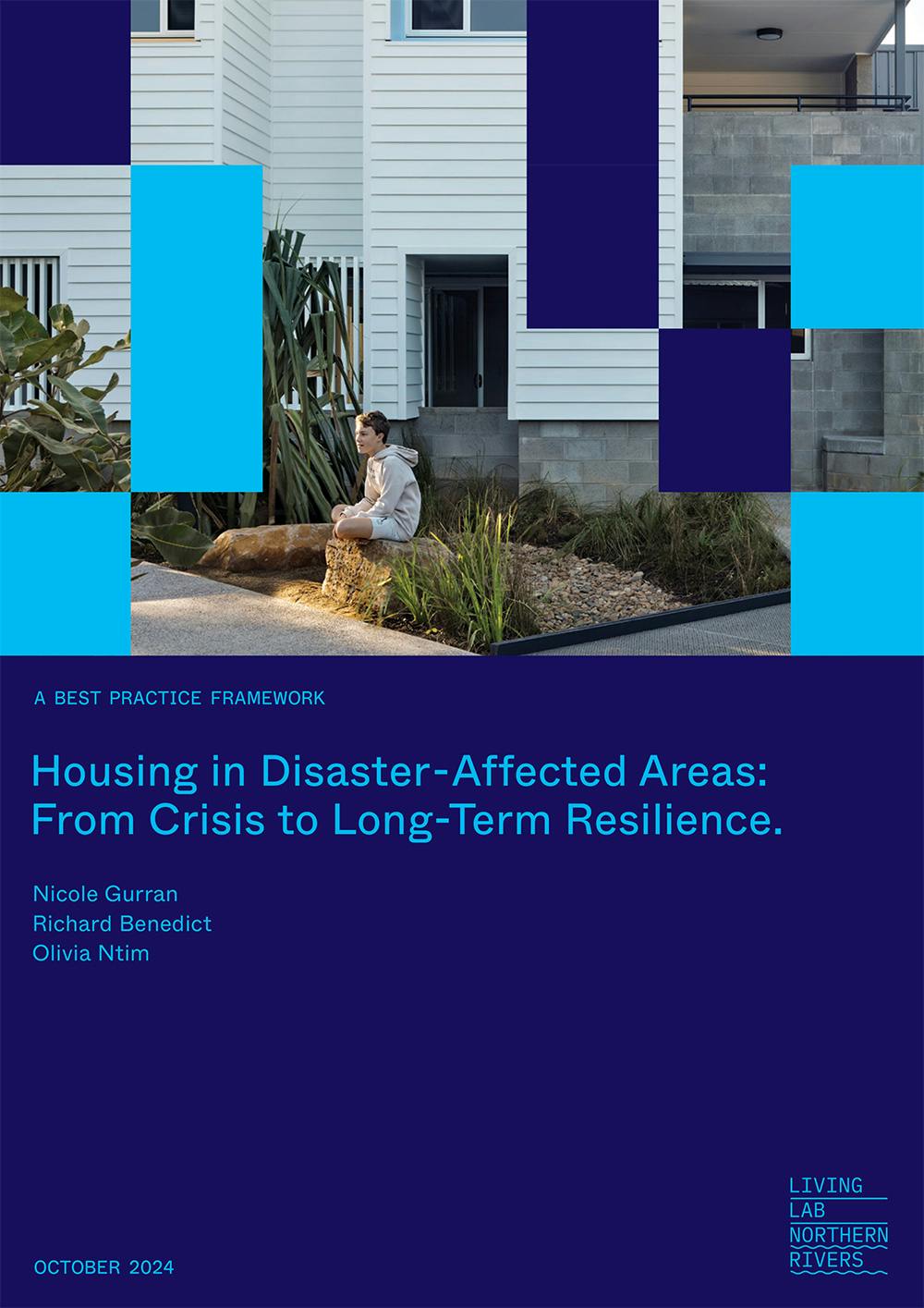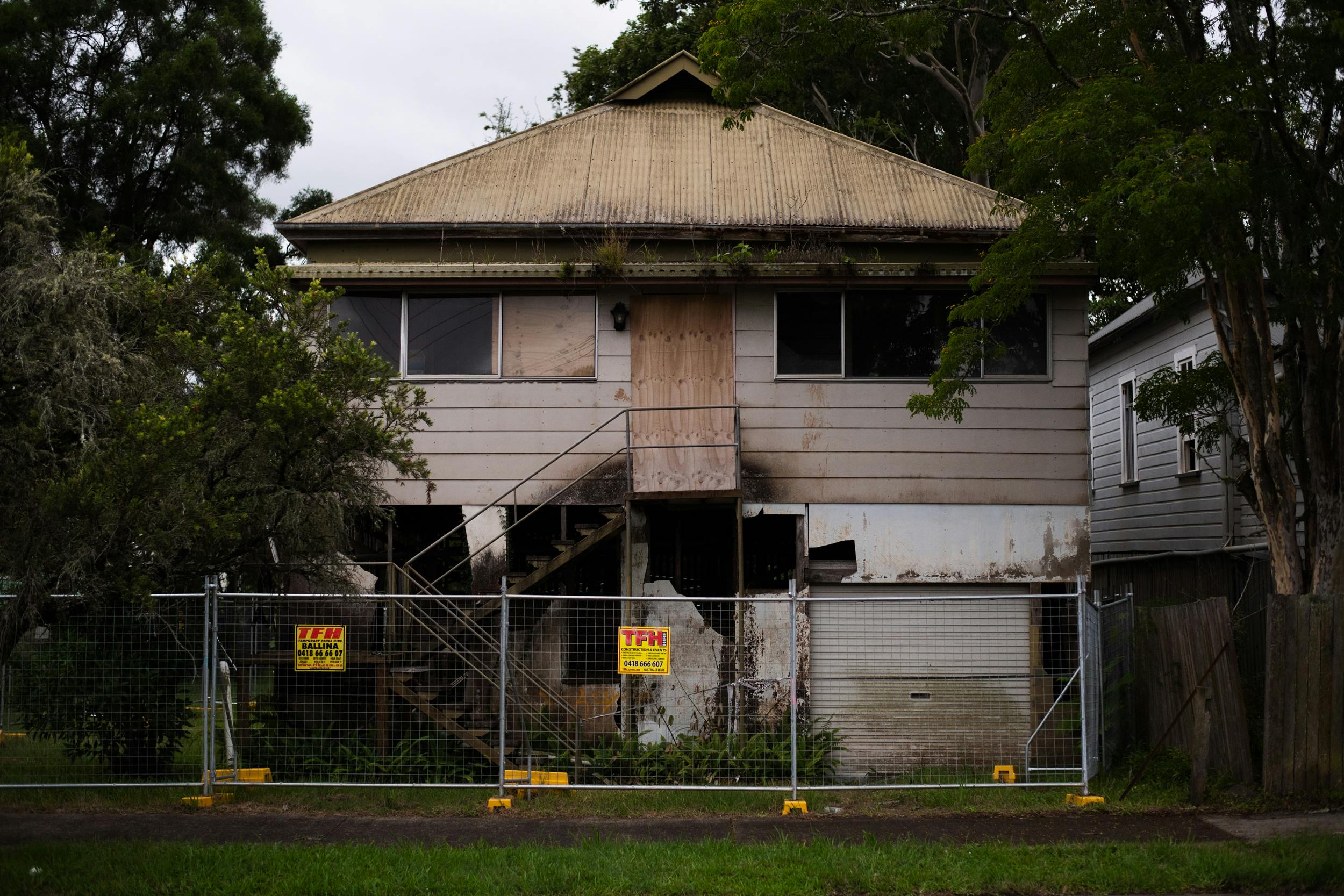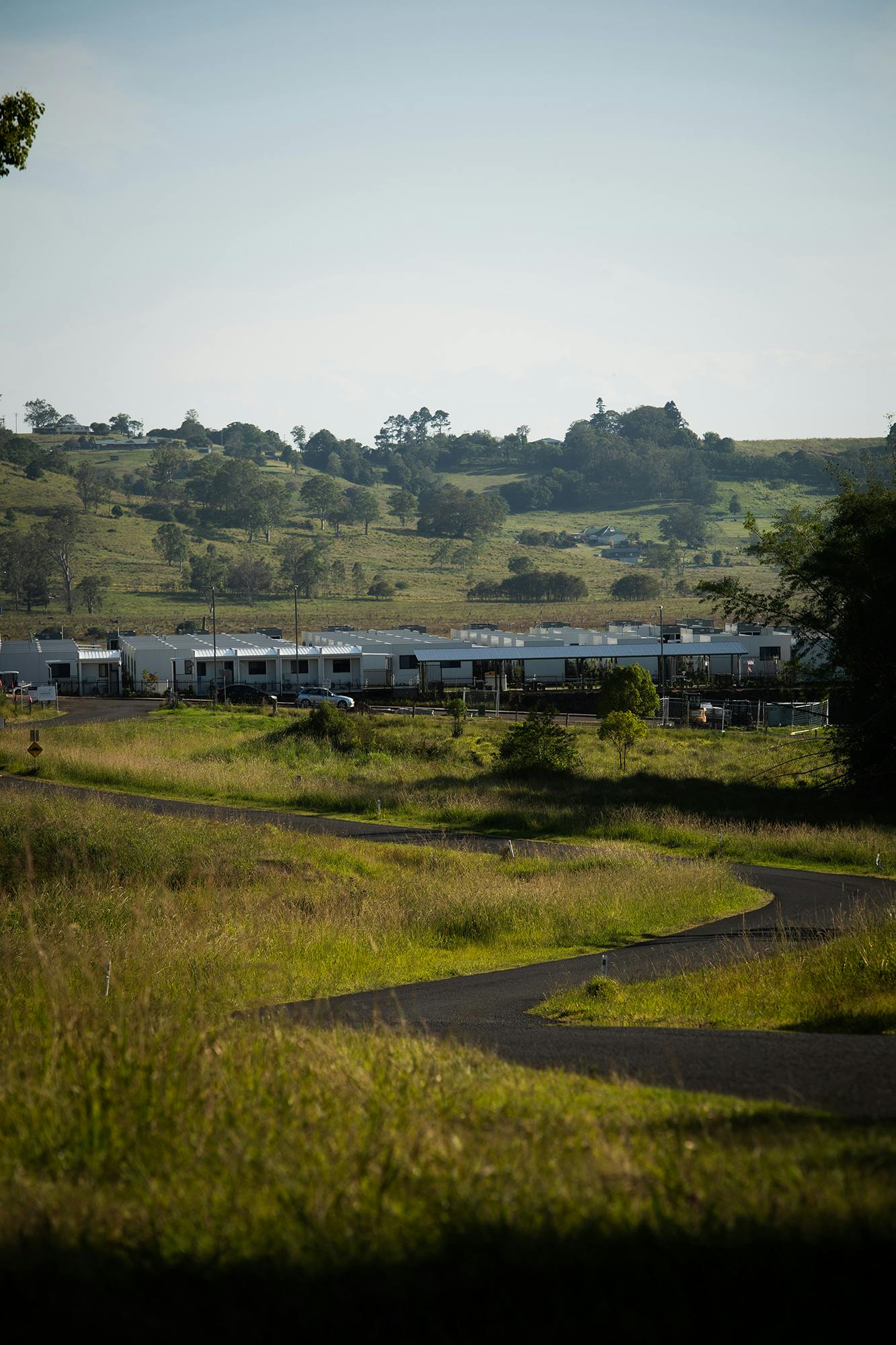Housing in Disaster-Affected Areas: From Crisis to Long-term Resilience

Research
New research reveals substantial gaps in Australia's disaster housing response, years after the devastating Northern Rivers floods. This report outlines critical reforms needed to protect communities in an era of escalating climate risks.
Why this matters
The 2022 Northern Rivers floods exposed critical weaknesses in how we manage housing during and after disasters. This research shows that, without proper intervention, existing housing stress transforms into long-term displacement. In the Northern Rivers, we are seeing the way that market forces push vulnerable residents from their communities as rental prices surge, while emergency accommodation has proven to be unsuitable for many displaced households. These preexisting conditions aren't unique to the Northern Rivers — similar housing pressures and system weaknesses exist across the state. By learning from the failures in this region, we can address similar problems from playing out in future disasters elsewhere.
Key findings
This research identified three interconnected challenges:
- Planning gaps: Current disaster responses treat housing crises as short-term emergencies, despite evidence showing recovery typically takes 5-10 years. The Northern Rivers experience shows how this mismatch leaves communities vulnerable to repeated cycles of displacement.
- Immediate recovery needs: The 'pod villages' established as temporary accommodation are inappropriate for many residents, particularly families escaping domestic violence and intergenerational First Nations families. This highlights the critical need for diverse, culturally appropriate emergency housing options.
- Data and coordination: During the Northern Rivers response, agencies couldn't answer basic questions about at-risk homes or vulnerable residents. This information gap directly undermined their ability to help those most in need.
A Best Practice Framework: Housing in Disaster-Affected Areas.
Read the report →

"The Northern Rivers experience shows us that housing must be central to disaster planning, not an afterthought," says Professor Nicole Gurran, lead researcher and Director of the University's Henry Halloran Research Trust. "Our research provides a clear pathway to transform how we prepare for and recover from disasters, with housing security as the foundation."
Prof. Nicole Gurran
Nicole is Professor of Urban and Regional Planning at the University of Sydney, where she directs the University’s Henry Halloran Research Trust. She has led numerous studies on urban planning, housing, regional development and climate change, funded by the Australian Research Council, the Australian Housing & Urban Research Institute, as well as state and local government. She has authored several books including Urban Planning and the Housing Market (2017, Palgrave), Politics, Planning and Housing Supply in Australia, England and Hong Kong, (Routledge, 2016), and Australian Urban Land Use Planning (2011).
Beyond academia, Professor Gurran serves as a State appointed independent expert member of the NSW Planning Panels advising on regionally significant planning decisions. She is a Fellow of the Planning Institute of Australia.
Nicole grew up in Lismore.
Richard Benedict
Richard is an independent housing researcher working with several universities undertaking research funded by the Australian Housing and Urban Research Institute and other government agencies into social, affordable and Indigenous housing.
He is also Director of Richard Benedict Consulting. Richard has over 30 years of experience working in the private, government and not-for-profit housing sectors in Australia and the United States.
Richard has advised Cabinets, Ministers and Department Heads in NSW, Victoria, Tasmania and the Northern Territory on housing strategies, policies, and programs. He has worked with developers, investment funds, government and not for profit groups to develop and evaluate joint venture mixed income housing projects.
Richard holds a Master of Project Management, Bachelor of Architecture (honours).
Olivia Ntim
Olivia is a PhD researcher at UTS School of Built Environment, earned an MSc in Environment and Development from the London School of Economics and Political Science, UK, and a BSc (Honours) in Land Economy from KNUST, Ghana.
As a certified Excellence in Design for Greater Efficiencies (EDGE) Green Building Expert, she focuses on land, property development, housing, and sustainability.
Olivia’s current research delves into the socio-political dimensions of urban land and property in Sub-Saharan African cities for resilience. She has teaching and research assistant experience at UTS and KNUST, along with industry roles as an Environment and Development Practitioner and Land Economist.

Pod village in the Lismore area built to house people impacted by the 2022 floods. Image by Elise Derwin.
This Disaster Ready Fund project is funded by the Australian Government and NSW Government.


